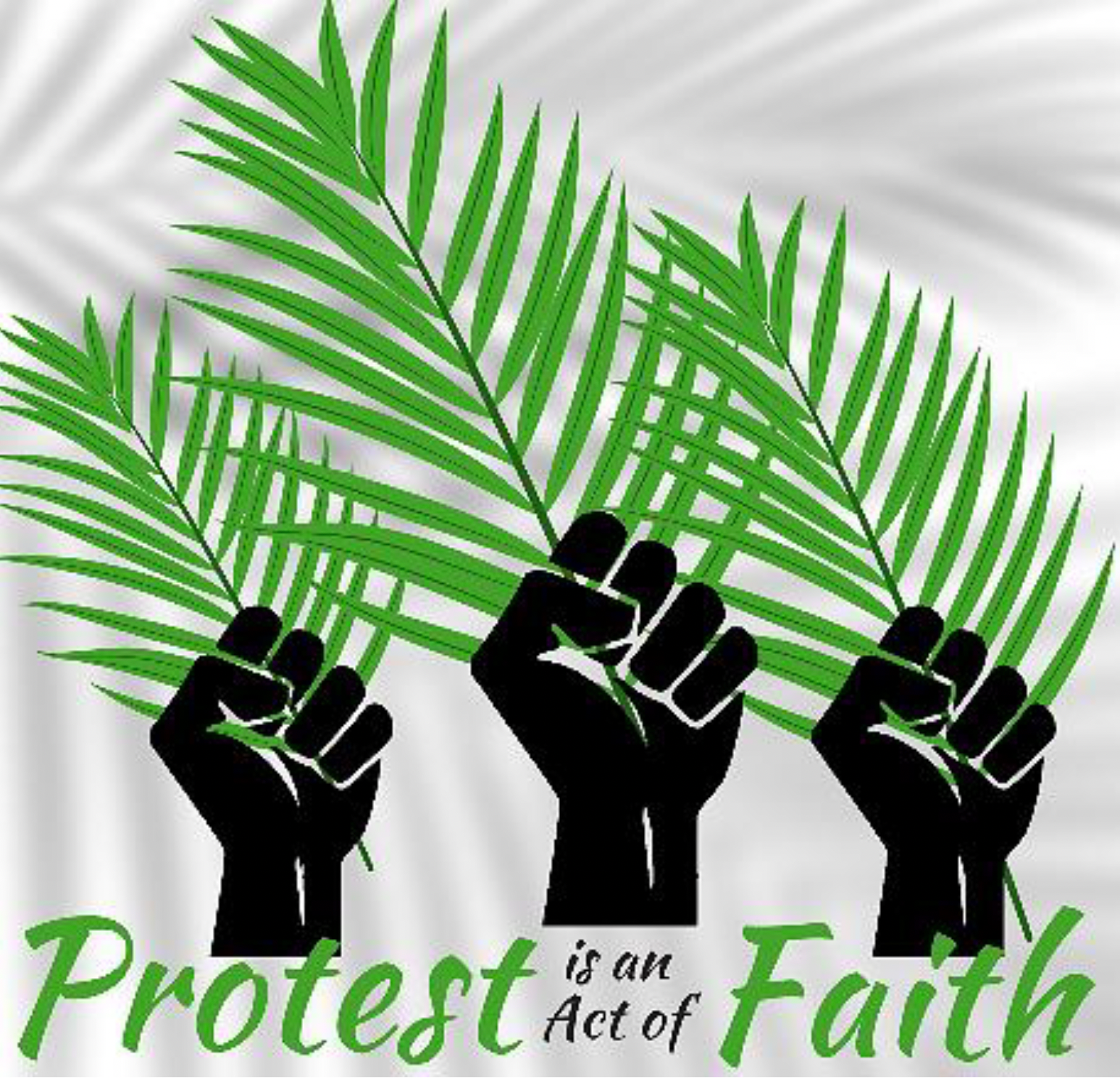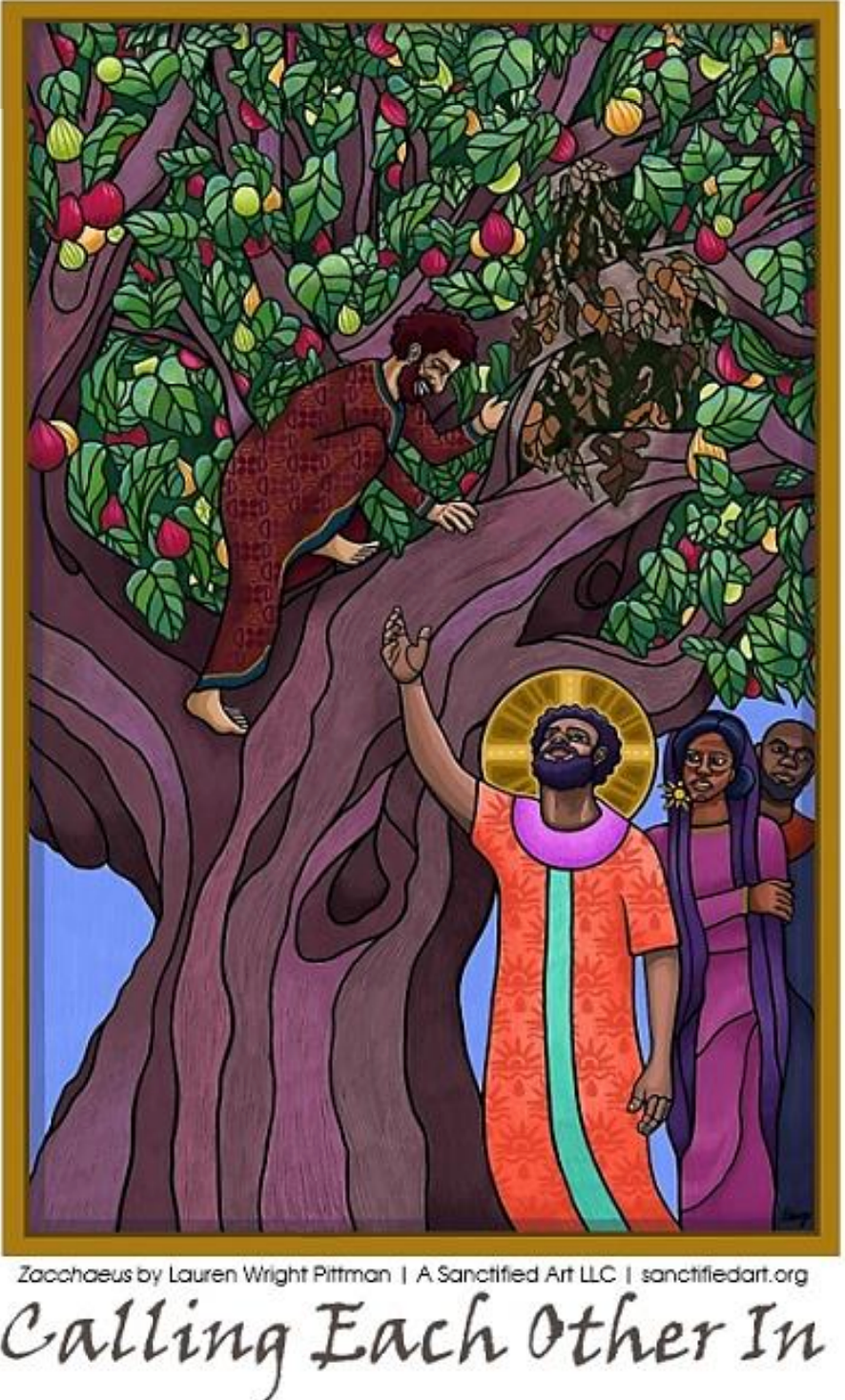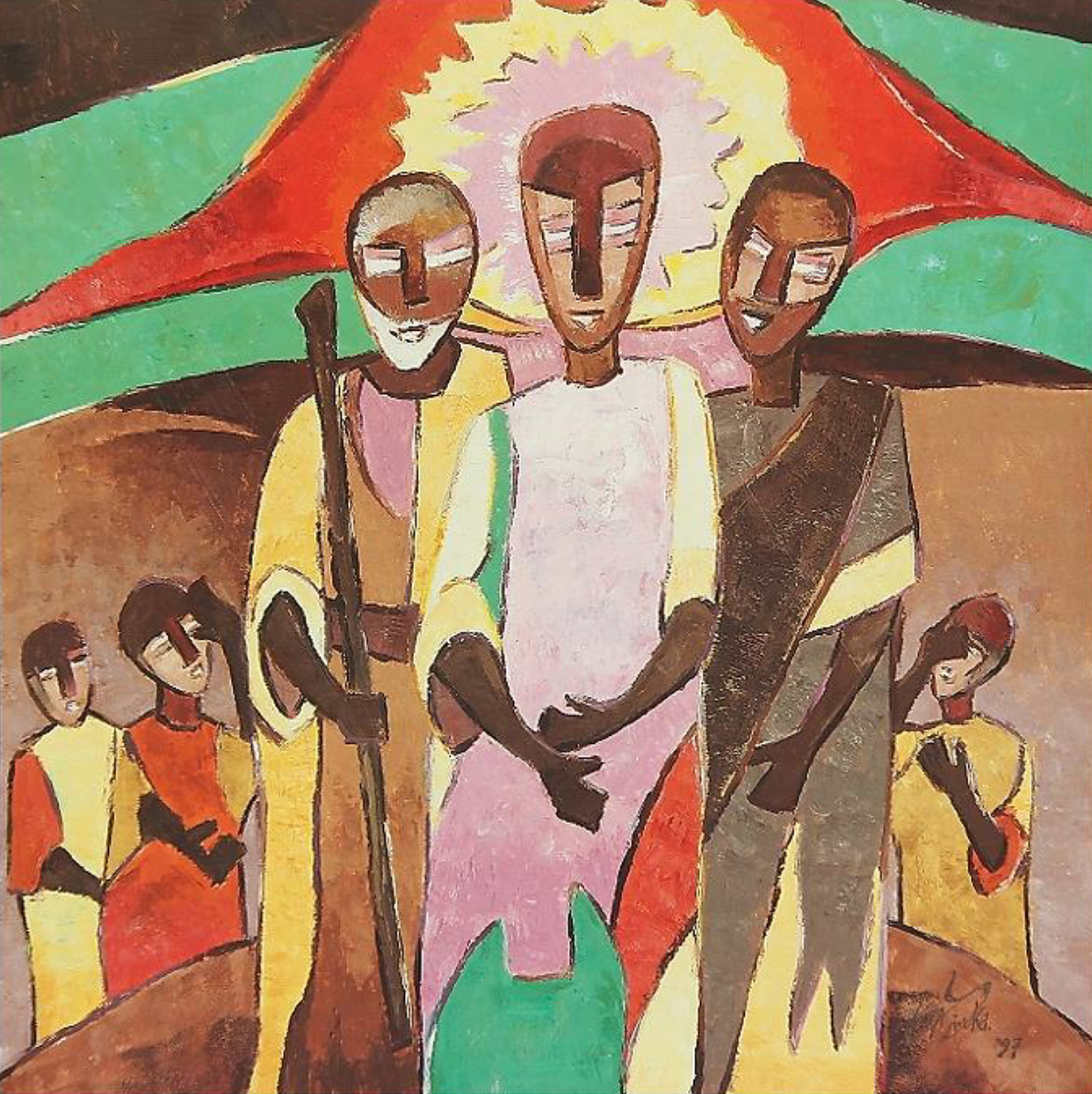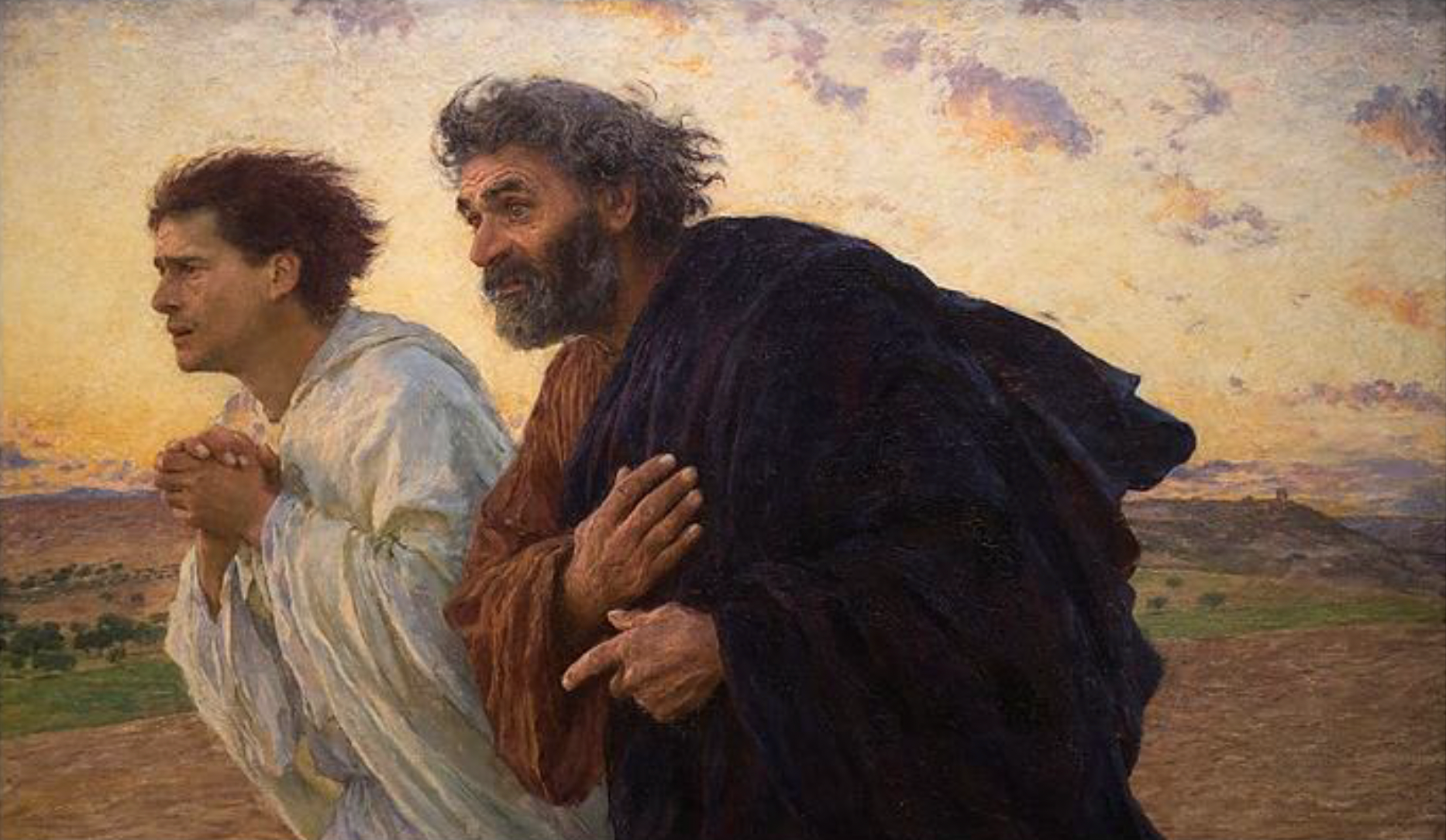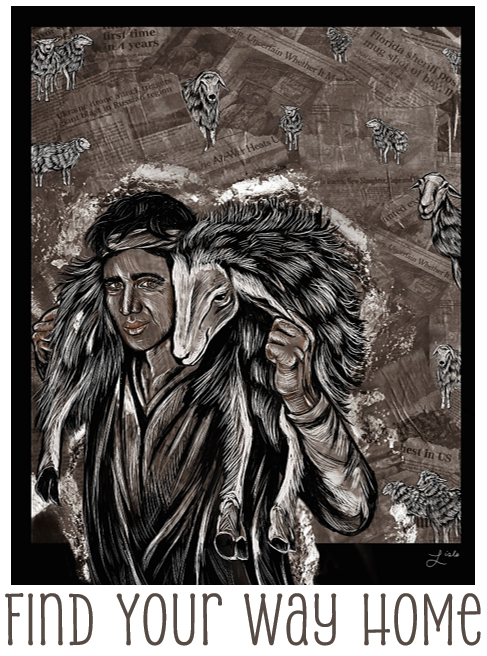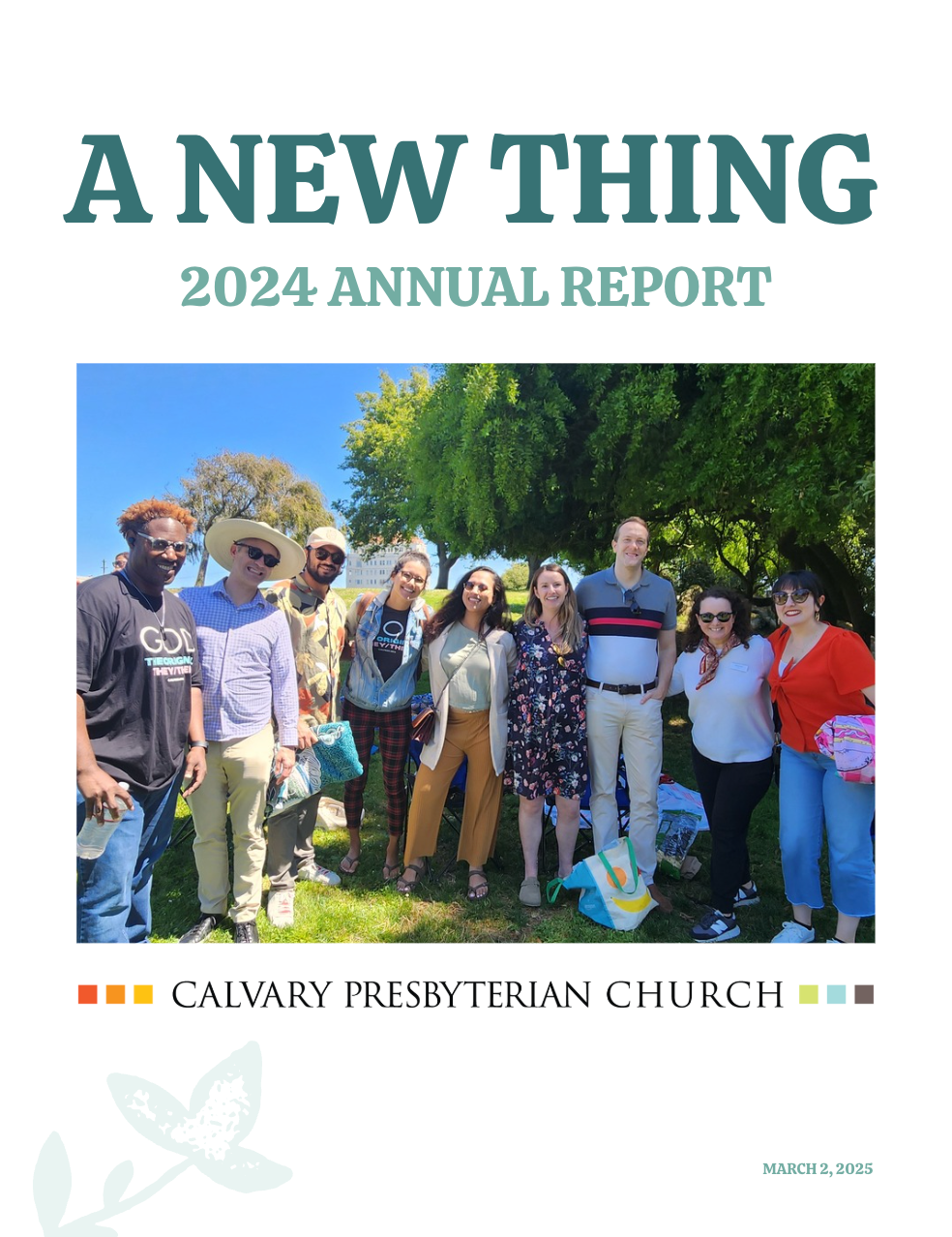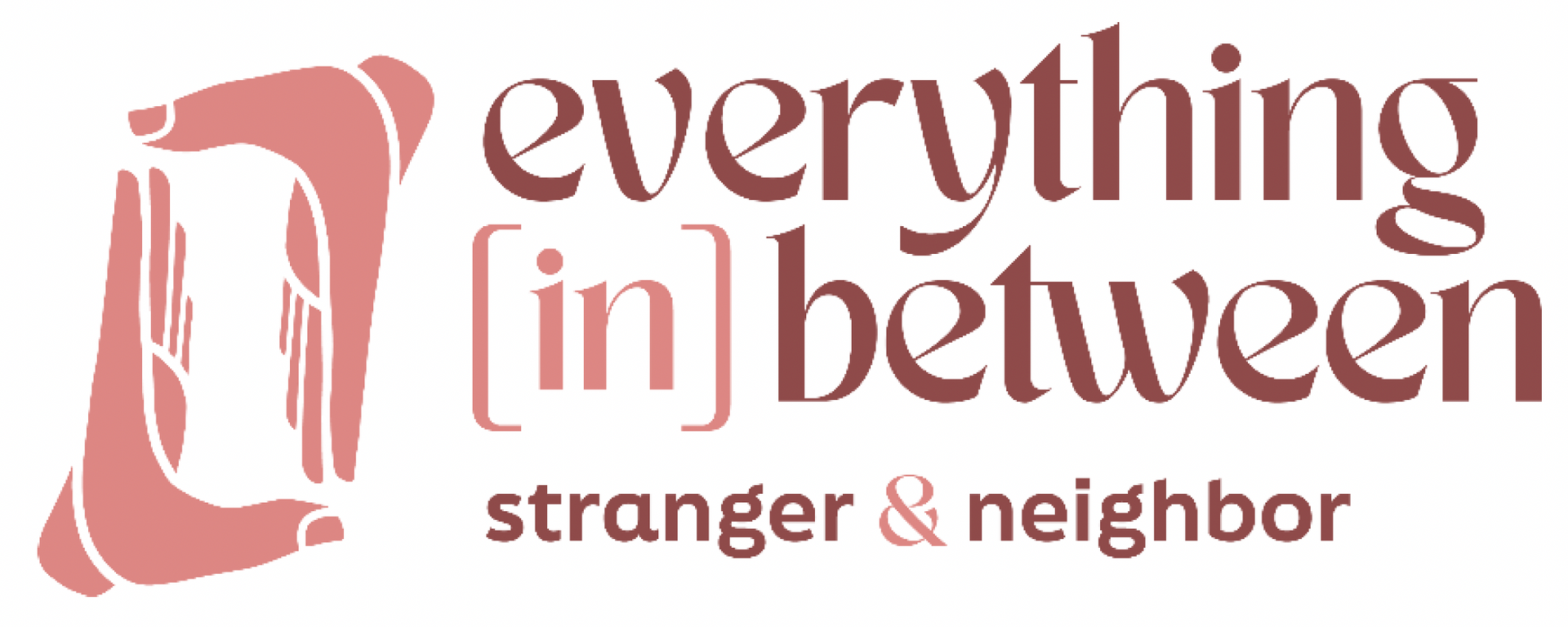Sermon 11.10.2024: A Whale of the Tale
The story of Jonah is one of a God who will not let us go, even when we're on the run. This whale of a tale is one of a God whose mercies and grace abound even to people whom others hate and cannot forgive.
Scripture
Jonah 1:1-17; 3:1-10
Now the word of the Lord came to Jonah son of Amittai, saying, ‘Go at once to Nineveh, that great city, and cry out against it; for their wickedness has come up before me.’ But Jonah set out to flee to Tarshish from the presence of the Lord. He went down to Joppa and found a ship going to Tarshish; so he paid his fare and went on board, to go with them to Tarshish, away from the presence of the Lord.
But the Lord hurled a great wind upon the sea, and such a mighty storm came upon the sea that the ship threatened to break up. Then the mariners were afraid, and each cried to his god. They threw the cargo that was in the ship into the sea, to lighten it for them. Jonah, meanwhile, had gone down into the hold of the ship and had lain down, and was fast asleep. The captain came and said to him, ‘What are you doing sound asleep? Get up, call on your god! Perhaps the god will spare us a thought so that we do not perish.’
The sailors said to one another, ‘Come, let us cast lots, so that we may know on whose account this calamity has come upon us.’ So they cast lots, and the lot fell on Jonah. Then they said to him, ‘Tell us why this calamity has come upon us. What is your occupation? Where do you come from? What is your country? And of what people are you?’ ‘I am a Hebrew,’ he replied. ‘I worship the Lord, the God of heaven, who made the sea and the dry land.’ Then the men were even more afraid, and said to him, ‘What is this that you have done!’ For the men knew that he was fleeing from the presence of the Lord, because he had told them so.
Then they said to him, ‘What shall we do to you, that the sea may quieten down for us?’ For the sea was growing more and more tempestuous. He said to them, ‘Pick me up and throw me into the sea; then the sea will quieten down for you; for I know it is because of me that this great storm has come upon you.’ Nevertheless, the men rowed hard to bring the ship back to land, but they could not, for the sea grew more and more stormy against them. Then they cried out to the Lord, ‘Please, O Lord, we pray, do not let us perish on account of this man’s life. Do not make us guilty of innocent blood; for you, O Lord, have done as it pleased you.’ So they picked Jonah up and threw him into the sea; and the sea ceased from its raging. Then the men feared the Lord even more, and they offered a sacrifice to the Lord and made vows.
But the Lord provided a large fish to swallow up Jonah; and Jonah was in the belly of the fish for three days and three nights.
The word of the Lord came to Jonah a second time, saying, “Get up, go to Nineveh, that great city, and proclaim to it the message that I tell you.” So Jonah set out and went to Nineveh, according to the word of the Lord. Now Nineveh was an exceedingly large city, a three days’ walk across. Jonah began to go into the city, going a day’s walk. And he cried out, “Forty days more, and Nineveh shall be overthrown!”
And the people of Nineveh believed God; they proclaimed a fast, and everyone, great and small, put on sackcloth. When the news reached the king of Nineveh, he rose from his throne, removed his robe, covered himself with sackcloth, and sat in ashes. Then he had a proclamation made in Nineveh: “By the decree of the king and his nobles: No human being or animal, no herd or flock, shall taste anything. They shall not feed, nor shall they drink water. Human beings and animals shall be covered with sackcloth, and they shall cry mightily to God. All shall turn from their evil ways and from the violence that is in their hands. Who knows? God may relent and change his mind; he may turn from his fierce anger, so that we do not perish.” When God saw what they did, how they turned from their evil ways, God changed his mind about the calamity that he had said he would bring upon them; and he did not do it.
Sermon
So, here's a little secret that nearly all biblical scholars know: the stories found in the Bible weren’t always meant to be taken literally.
Even the books written as [quote/unquote] “history” weren’t trying to tell the most accurate or most exact history of the Israelite people.
Those hearing these stories in their original context expected hyperbole, expected imagery, and metaphor, and satire, and all the story-telling devices that make stories compelling.
John Dominic Crossan, a scholar in the historical Jesus movement once said: “My point, once again, is not that those ancient people told literal stories and we are now smart enough to take them symbolically, but that they told them symbolically and we are now dumb enough to take them literally.”
Perhaps no book in the bible exemplifies this symbolic story telling more than the book of Jonah.
If you’ve never read the book of Jonah, I invite you to do so.
It’s only four short chapters, and you’ve already heard chapters 1 and 3 read by Marci today. It’s found in the prophets section of scripture, which is fitting in some ways, because Jonah was a prophet sent to the people of Ninevah, carrying a word from God.
But this story is different from all the other prophetic books.
For one, all the other prophets focus on Israel and Judah, calling God’s chosen people back to God.
But here, Jonah is sent to a people he really, really dislikes, all the way over in Nineveh, the capital of the Assyrian empire.
Jonah dislikes the Ninevites so much, that rather than doing what God says, he runs away from God, unwilling to share God’s word with them.
But after a quick detour through the belly of a whale—actually, the Hebrew says a big fish, he finally does share God’s word with the Ninevites.
And perhaps, for the first time in prophetic history, they all listen and repent and turn back to God!
Jonah is remarkably successful in ways other prophets, like Isaiah, Jeremiah, Amos, and Micah, are not!
People actually listen to him! And Nineveh is saved!
But while Jonah is successful in getting the people of Nineveh to repent, he isn’t exactly excited or happy about it.
All of chapter four is him sulking and being angry at God because of it.
I’m fascinated by the inclusion of this part, by the way.
I kind of love a grumpy, slightly whiny prophet that feels like death because God is willing to save a people he hates.
What an interesting story arc that is!
So Jonah is a story about a God whose mercies reach further than we are willing to go.
It’s a story about a God of second chances and a God who puts up with our anger and our pouting.
It’s a story about a God who will not let us go and from whose spirit we cannot escape.
But I gotta be honest.
Reading and preparing a sermon about Jonah looked and felt different before Tuesday’s election than it did after Tuesday’s election.
Before, I was gonna preach a sermon on how we cannot run away from God, that no matter what we do or what we refuse to do, God’s mercies and love find us again and again.
That sermon, I would say, still holds to some degree. But it is a sermon written from the vantage point of God. A sermon that says, “Oh, Jonah. What were you thinking? Did you really think you could get away?”
But here’s the thing: I went to bed crying on Tuesday night. I let myself break down and feel all the things.
And when I woke up the next few mornings, trying to write a sermon for today, I began to understand Jonah in ways I never thought I could. Because if God asked me to go to, say, West Palm Beach, Florida and to somehow be among the revelers on Tuesday night who supported a convicted felon who brags about assaulting women and promises to treat immigrants and refugees in literally God-forsaken ways, I am quite certain I would not do it. I would refuse. I’d get in a boat and go the other way. In fact, I’d probably rather jump into the belly of a whale. I would offer myself up to be swallowed whole by a giant, stinky fish, than go and do that. Anywhere but Nineveh. Anywhere but among those who have made me an enemy. And, honestly, that’s where I am in Jonah’s story today. Stuck in chapter two.
Now, for me, it’s not even about who you voted for, or if you voted, although I do believe that matters, ultimately that’s between you and God. For me, it’s about: what now?
Because our lives are inextricably intertwined, and our collective choices will have consequences.
So how will we intend to live as God’s people in the world these next four years, these next four decades, and for the rest of our lives? What concerns me most is that the people we’ve put in power can make it so much harder to love and care for our vulnerable neighbors not just through thoughts and prayers, but through actions and policies.
So while I know, on some level, that God is sovereign over all. Today, the storms of life have overwhelmed me. I have been thrown overboard. And today, I am sitting in the darkness of a whale’s belly, angry, heartbroken, and a little lost.
So thank God for bible stories that don’t give us answers but show us that this, too, is okay. Needing to be curled up inside a dark empty cavern is okay because even the prophets of God went through it.
So if this is true for you, too, take three days. Take three weeks. Take three months. Take the time you need in that whale. Maybe even build a fire, get a little cozy. It’s not the best place to be; it’s damp, it smells weird, and it’s not where God ultimately wants us and definitely is not the promised land, but, listen, it’ll do for now because the world outside is just as messy and stinky and scary.
But while you’re in there, in that cavernous darkness, when you get a chance, remember to say a prayer. The words don’t have to be your own. Borrow Jonah’s if you have to. He prays in chapter two:
‘I called to the Lord out of my distress, and the Lord answered me;
out of the belly of Sheol I cried, and you heard my voice.
You cast me into the deep, into the heart of the seas,
and the flood surrounded me;
all your waves and your billows passed over me.
… As my life was ebbing away, I remembered the Lord;
and my prayer came to you, …
Those who worship vain idols forsake their true loyalty.
But I with the voice of thanksgiving will sacrifice to you;
what I have vowed I will pay.
Deliverance belongs to the Lord!’
Friends, God hears us in our despair. And deliverance belongs to the Lord. One day, eventually, the whale will spit us out to go and do the work that God has called us to do. And we will do it. But for now, it’s okay if you’re not quite ready to leave the quiet stillness of being inside a big fish.
But do remember to pray—to cry out to God. Not only so that God will hear us, but because perhaps inside the great vastness of a big fish, we weren’t able to see the others who have also been swallowed up whole alongside us.
What if we aren’t alone in here? And there are others, experiencing this very same darkness? And maybe if we pray—using our voices to speak out and speak up, we will find each other, and others will join us, and we will realize, we are not alone, and we can do hard things.
Parker Palmer writes, “In times of deep darkness, we not only need light—we need to be light for one another.”
So perhaps in this belly of a whale together, we will find the courage to build a fire and be a light for one another, and maybe that light and the smoke from it will billow so large that we will get spewed out onto the shores of life, ready again to do the work that God has called us to do. And we will do it.
We will feed those who are hungry.
We will clothe those who are naked.
We will lift up the brokenhearted, and welcome the stranger and the immigrant.
We will set the oppressed free.
And yes, we will even love our enemies.
We will do it because we know who we are and whose we are.
And sometimes, along the way, we will complain, just like Jonah did. We will grumble and maybe even cry. But as Charlotte Bronte wrote over a hundred years ago:
“Crying does not indicate that you are weak.
Since birth, it has always been a sign that you are alive.”
And as Jon Roedel wrote earlier this week:
if you can still cry it means you can still breathe
and if you can still breathe it means you are still alive
and if you are still alive it means you still have some work to do
~ so go ahead and cry for a bit
~ each tear is proof of your survival
~ each jagged breath you take is evidence of your courage
~ you may be wounded
~ you may be discounted, but you are still here
~ and somedays simply still being here
despite what the world has done to you is a miracle …
[so] don’t hide your streaking tears
they are your badges of salty valor
that tell the story [of] how you kept going despite the raging storm
we need you
~ so go head and cry
~ breathe
~ survive
~ then get back to work
~ be the miracle
Friends, let it be so. Amen.

